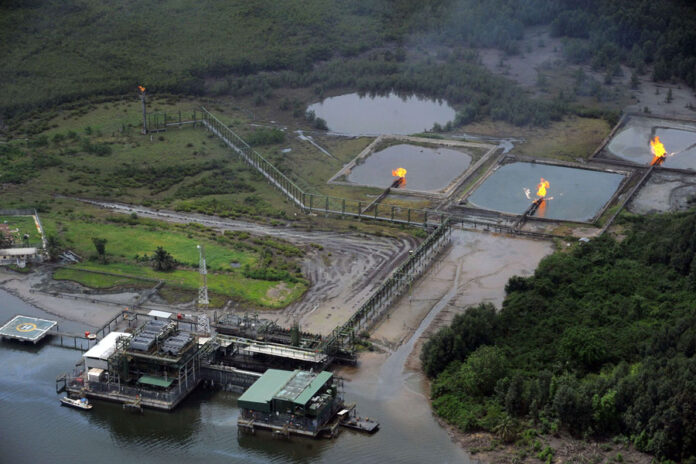The Nigerian Upstream Petroleum Regulatory Commission (NUPRC) says 17 marginal oilfields are currently producing out of 30 fields awarded so far since its inception in 1999.
Mr Gbenga Komolafe, Commission’s Chief Executive, NUPRC, made this known at the Association of Energy Correspondents of Nigeria (NAEC) Strategic International Conference on Thursday in Lagos.
The conference had as its theme, ” Energy Transition: “Shaping the Future of Nigeria’s Energy Industry, an Appraisal of PIA, Evolving Benefits and Challenges.”
Komolafe, represented by Mr Abel Nsa,Head, National Oil and Gas Excellence Centre (NOGEC), said marginal fields award was initiated to increase participation of indigenous companies in the upstream sector and build local content capacity.
He said it was also targeted at creating employment opportunities and
encouraging increased capital inflow to the sector and and create employment opportunities.
Komolafe said: “Since its inception, a total of 30 fields have been awarded, 17 currently producing.
“A breakdown of the allocation of the fields to indigenous operators is as follows: two fields awarded in 1999, 24 in 2003/2004, one each in 2006 and 2007, and two in 2010.
“10 years after, in 2020, 57 fields were put up for bidding.
It will be recalled that one of the major tasks inherited by the NUPRC, upon its
inauguration last year, was the need to conclude the 2020 Marginal Field Bid Round exercise.
“Consequently, we pursued the matter frontally and are delighted to inform you that the exercise which commenced in June 2020 has been concluded with
the issuance of Petroleum Prospecting License (PPL)to the deserving awardees.
” The issuance of the PPL has ushered in a new dawn for our indigenous operators to hit the ground running in developing their awarded assets in line with industry best practices and to take full advantage of the increasing crude price in the international market.”
He, however noted that the passage of the Petroleum Industry Act (PIA) had brought an end to the era of marginal field awards.
Komolafe said Section 94(9) of the Act states that “No new marginal field shall be declared under this Act.”
“Accordingly, the minister shall now award PPL on undeveloped fields following an open, fair, transparent, competitive, and non-discriminatory
bidding process in line with Sections 73 and 74 of the Act,”he said.
On the implementation of the PIA, the CCE said the commission had issued six
priority regulations.
He said they are: Nigeria Upstream Host Communities Development
Regulations, Nigeria Upstream Fees and Rents Regulations, Nigeria Royalty Regulations, Conversion and Renewal Regulations.
Komolafe said others are Domestic Gas Delivery Obligations Regulations and Licensing Round Regulations.
He said the commission was also in the process of issuing additional seven regulations in the phase two of the exercise in consultation with stakeholders in line with Section 216 of the PIA.
Also, Mrs Audrey Joe-Ezigbo, a former President of Nigeria Gas Association (NGA), said Nigeria must take advantage of the ongoing Russia- Ukraine crisis to attract investors to develop its abundant gas resources.
She noted that Africa and indeed Nigeria, had a very high energy poverty that could be transformed to opportunities by investors.
Joe-Ezigbo said: ” We know Nigeria has very vast gas reserves are these reserves that we can channel for electricity generation through gas powered energy plants.
“Gas also has the potential to be a very key driver of industrialisation or rapid economic advancement, as we’ve seen in several European countries.
“They’ve used gas to power their economies as feedstock and fuel for their industries.
“And really, we want a situation where Nigeria becomes one of those countries that is listed when we’re talking about nations that have leveraged their resources to build their economies.”




